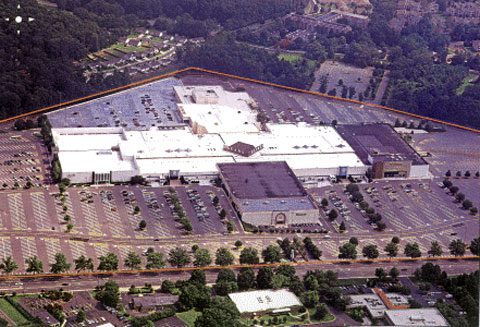Eastland Mall: To buy or not to buy?

In response to the news that the City of Charlotte is considering buying Eastland Mall in an effort to make the site attractive to an outside developer, possibly for use as TV and movie studios, PlanCharlotte.org sought opinions from civic and business leaders about the idea. They were asked:
1. Should the city buy Eastland Mall?
2. If yes, what should the city do with it?
3. If no, what should happen at Eastland?
Ike Heard Jr.
Urban planner, Heard Systems, former chair of Charlotte-Mecklenburg Planning Commission
I think that the city should consider purchasing and redeveloping the Eastland Mall site if they do it in the correct way, i.e., as a mixed-use, mixed-income, pedestrian-tolerant, transit-supportive/oriented, “vibrant streets” type of development. They should develop a number of partnerships with private developers and implement strong area planning (backed up by rezoning) for an area of several miles’ radius around the site.
John Hood
President and chairman, libertarian-oriented John Locke Foundation
I was one of those kids in the late 1970s and early 1980s who spent quite a lot of our time at Eastland Mall. I skated in the ice rink. I went to the movies there (and briefly worked at the theater). I wandered around and pretended to shop (that’s when you longingly look at stuff you’d like to have if your pockets weren’t empty).
So I was appalled when the mall descended into a mess and eyesore. I wish there was some obvious way to rejuvenate it as a retail center. But I suspect that if there was a viable strategy out there, someone looking to make a buck would already be pursuing it. For the city to buy it would be to throw good money after bad — and to force Charlotte taxpayers to take a business risk that experienced commercial real estate companies seem unwilling to do. Sounds unwise.
Let some willing buyer or buyers figure something out. I’m with the Jane Jacobs school of thought here: When in doubt, let the locals try things on their own dime. Don’t try to impose a comprehensive plan. It’s unlikely to work, and it distracts the city from its core functions. If that means that nothing much will be going on there for a while, so be it. I’d rather it lie fallow a while longer than be extravagantly planted with kudzu or poison ivy.
Joe Padilla
Executive director, Real Estate and Building Industry Coalition, Charlotte’s real estate and developers’ lobby
From what I understand of the proposal, the money to acquire the Eastland property has already been approved through bonds earmarked (but not yet issued) for that specific purpose. Those bonds, I gather, were intended to help spur redevelopment of the site and revitalization of the surrounding community.
However attractive the purchase price, it doesn’t usually make sense for a local government to get into the business of acquiring property for the purpose of spurring redevelopment. Public funds can be more effectively spent on infrastructure, public safety and other community investments that will help make all of East Charlotte more attractive to private developers. Also, by streamlining its regulatory processes, the City can further encourage redevelopment of Eastland Mall and other sites in East Charlotte by reducing the cost to future investors.
Susan Lindsay
East Charlotte activist, board member of the Eastland Area Strategies Team
We have planned and “visioned” the site for the last 11 years for mixed-use, to open up the lake, and more. I am thrilled that the property owners are finally willing to come together and agree on selling. This was a huge hurdle. With a purchase by the city two issues are resolved: One package becomes available for development, and second, community input will be assured.
I would very much like to stick to the vision of the property that was put together years ago and reiterated in more detail by the ULI [Urban Land Institute] study. However, if we have a financially viable interest in doing something else, such as movie/TV studios, sound stages, etc., then we need to take a serious look. Thinking outside the box will be good for us.… The price (after all my years of involvement in this) seems more than reasonable, but I’m no expert.
As to why the million-some square feet of retail space at Eastland hasn’t been redeveloped – well, a contributing factor is the million square feet of commercial zoning the city approved on Albemarle Road (between Lake Forest and Harrisburg Road) where the land use plans called for residential development. We have too much unsupportable commercial space.
Bill McCoy
Retired director, UNC Charlotte Urban Institute
My response is “yes” the city should buy it. Then the city should tear everything down with the exception of the transit center and turn it into a “green” field with trails, benches, maybe some whimsical public art and let it rest until an appropriate opportunity for development comes along. During this time, the city should commission some sort of competitive design approach to have professionals provide thoughts and illustrations about how this site should be redeveloped.
In my opinion, the property cannot be redeveloped as is. There is absolutely no need for 1.4 million, or whatever it is, square feet of retail at this site. There is very little demand for office use in the area. The buildings do not lend themselves to any sort of residential redevelopment. Hence, if the city does not buy it, the property will continue on its deterioration path until it becomes such an eyesore and crime magnet that the city will have to do something. Rather than go through that process, the city is better off interceding now. Any new vision for the east side is dependent on removing Eastland. With that hulk standing there, an east side renaissance will not happen.
Mary Hopper
Executive director, University City Partners, former chair of Charlotte-Mecklenburg Planning Commission
No, that time came and went. But the City should find financial and other incentives to move project along. From what I saw in the recent CIP [Capital Improvement Plan] package, it seems that projects along Independence Boulevard, including the amateur sports complex at Bojangles Coliseum, and coming from the Urban Land Institute’s Rose Study [which looked at using Independence for bus rapid transit and putting a streetcar along Monroe Road] may have shifted focus away from Central and toward Independence/Monroe, at least at this point of time – but that may be more my perception than reality. My general experience is that to be successful a group of area activists – which is certainly something East Charlotte is blessed with – needs to focus its advocacy on one corridor at a time. I hasten to add that is their decision, not mine, so I am NOT prescribing what they should do, just telling about what I learned from 20 years of advocating for challenged corridors including North Tryon, Freedom Drive and South Boulevard.
A former marketing manager at Eastland recently told me that someone she knew had a vision to convert the mall into a hub of health-related facilities. I thought that could have merit. If memory serves me right, there are examples of that in other areas of the country. With the current state of retail, finding ways to retrofit closed malls will continue to be a challenge. What I have learned through ULI is that sometimes the greenest building is the one you don’t tear down. That is a paradigm shift from when the planning commission produced its first big-box study and we quoted someone out of Chicago who said the only people who would make money on old buildings were folks who ran demolition companies.